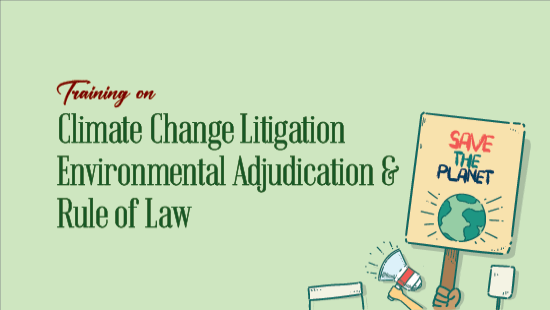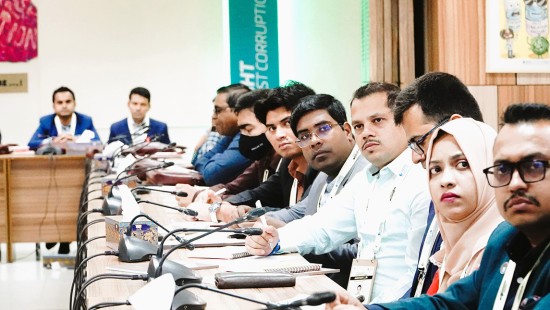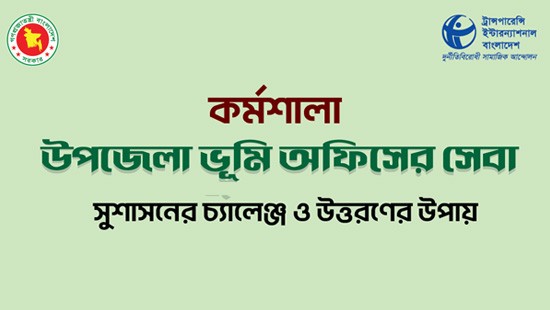Published: 05 October 2025
According to the UN's Food Waste Index Report 2024, a Bangladeshi wastes 82 kg of food per year at home; in total, this amounts to 14.1 million tonnes of household food waste annually in Bangladesh. Every year, Bangladesh loses nearly 34% of its staple foods, including rice, lentils, mangoes, and fish. This is a huge challenge to food security and sustainability. There, it rots and releases methane, a greenhouse gas far more potent than carbon dioxide. This growing problem worsens climate change, pollutes land and water, and wastes resources that could feed millions. So, how can we tackle it together? While many initiatives can be taken to reduce waste, a more cohesive and systematic effort is needed to overcome the flaws of the current waste management system.
Recognizing this time-sensitive issue, Transparency International Bangladesh (TIB) marked the 'International Day of Awareness on Food Loss and Food Waste' by organizing an expert consultation meeting focused on reducing food waste from landfills. The event brought together academics, practitioners, journalists, and key stakeholders from the fields of environment, climate change, and solid waste management to discuss governance challenges and practical solutions.
This consultation focused on waste produced at consumer and retail levels, as well as losses from production and industrial processing. Participants shared experiences, highlighted knowledge gaps, and offered recommendations, including lessons from previous interventions aimed at diverting food from landfills. The consultation meeting emphasizes the importance of public campaigns to raise awareness about waste segregation, recycling, and the environmental impact of improper waste disposal. Prioritizing the aforementioned concerns, Mr. Enayetullah, Director of "Waste Concern," proposed doable solutions like expanding financial and regulatory mechanisms, funding technology and infrastructure, and encouraging regional collaboration to lower methane emissions. Md. Shafiullah Siddique Bhuiyan from the 'Dhaka South City Corporation (DSCC)' pointed out the problems in the country's waste management system, saying that the government needs to create clear rules and strong laws and make sure these policies are put into action to bring about real improvements.
'JICA's solid waste consultant, Dr. Tariq Bin Yousuf, highlighted that a lack of training frequently results in misusing the equipment in the municipalities. Mr. Md Jahidul Islam of "The Business Standard" emphasized the lack of precise data on waste generation. Additionally, he notes that the stated numbers are only representative of the information gathered by city corporations, whereas rural data are unavailable. Mr. Kazi Rashed Hyder from 'Water Aid Bangladesh' called for the transformation of secondary transfer stations into material recovery facilities and their development.
Food waste is not only an environmental issue but a moral one. Globally, landfills are the third-largest source of methane emissions, after oil and gas systems and agriculture. Diverting food from landfills can cut emissions and save food for redistribution, supporting Sustainable Development Goal 12.3 to halve per capita food waste by 2030, SDG 13 on climate action, and SDG 2 to end hunger.
The consultation meeting was moderated by Dr. Sumaiya Khair, Adviser to TIB’s Executive Management, who emphasized that by learning from global best practices, fostering innovation, and raising public awareness, Bangladesh can transform its waste management system into one that is more sustainable, efficient, and environmentally responsible. TIB’s Executive Director, Dr. Iftekharuzzaman, stated that ideas from various countries can be adopted and implemented in Bangladesh to reduce as well as to manage waste in a better way. He also urged all stakeholders, including government, businessmen, civil society, and citizens, to work together to reduce food waste and landfill emissions.
Minimizing food loss and waste can help reduce the environmental impact. It's one of the most direct and cost-effective ways to use fewer resources while lowering emissions. The harvests lost today do not have to mean a lost future tomorrow. It is both morally and environmentally necessary to reduce food loss. TIB’s consultation meeting is a step toward a sustainable, accountable, and hunger-free future, showing that with collective action we can save food, protect the climate, and support communities in need.
















